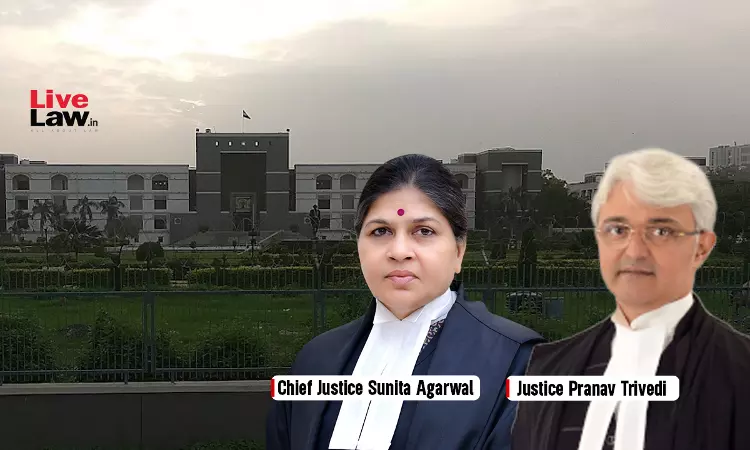- Home
- /
- High Courts
- /
- Gujarat High Court
- /
- Statutory Remedy To Address...
Statutory Remedy To Address Grievance On Implementation Of MNREGA Scheme Exists, PIL Can't Be Entertained: Gujarat High Court
Lovina B Thakkar
11 Feb 2025 6:45 PM IST
While rejecting a PIL alleging irregularities in implementation of the scheme framed under Mahatma Gandhi National Rural Employment Guarantee Act (MGNREGA), the Gujarat High Court on Tuesday (February 11) said that since a statutory remedy exists for addressing any grievances on the scheme's implementation a PIL cannot be entertained.A division bench of Chief Justice Sunita Agarwal and...
While rejecting a PIL alleging irregularities in implementation of the scheme framed under Mahatma Gandhi National Rural Employment Guarantee Act (MGNREGA), the Gujarat High Court on Tuesday (February 11) said that since a statutory remedy exists for addressing any grievances on the scheme's implementation a PIL cannot be entertained.
A division bench of Chief Justice Sunita Agarwal and Justice Pranav Trivedi ordered “As the conduct of the MGNREGA scheme is governed by the Statutory enactment named as the MGNREGA Act, 2005, any grievance related to the implementation of the scheme can very well be raised by availing statutory scheme provided therein. The present petition filed in the nature of Public Interest Litigation, in view of the availability of statutory remedy cannot be entertained and hence, rejected.”
The Counsel for the petitioner contended that the PIL is filed to address irregularities in the implementation of the Mahatma Gandhi National Rural Employment Guarantee, scheme framed under Mahatma Gandhi National Rural Employment Guarantee Act (MGNREGA), arguing that the complaints were not being addressed.
The Court orally said, “File a complaint before the competent authority. If these complaints are not being taken care of then file a regular writ petition, issuing directions.” The counsel submitted that such a writ petition was filed to which the court asked him to pursue that plea.
The Court then asked the counsel if a complaint is made under the provisions of MGNREGA.
To this the Counsel contended that since larger public interest is involved, the PIL was filed, adding that the complaints have been made and are pending since a year. The Counsel then contended that the Writ petition was filed in January.
The Court then orally remarked “Sorry, you go to the authority, we are not entertaining this petition, you withdrew it and then you are filing a PIL...Mr. Counsel, there is a provision under MGNREGA Act, when there is a statutory remedy provided, you are not supposed to file a PIL. Statutory provisions are there, rules are there, you have to follow the rules.”
However the counsel emphasized that the complaints have been pending since a year.
At this stage the court orally said that petitioner can file a writ petition, seeking a writ of mandamus, adding that "Every matter is not PIL”.
After the submissions, the Court in its order dictated,“In various paragraphs of the writ petition, assertions have been made with regard to different works undertaken under MGNREGA and irregularities/corruption in execution of such work. We may record at the outset under the MGNREGA Act, 2005, a grievance redressal mechanism has been provided under Section 19 of the Act, 2005".
The State's counsel pointed out that in exercise of powers under Section 32 of the MGNREGA Act, 2005, the State Government had framed relevant rules which provides the procedure for dealing with the grievances raised by the petitioner.
After rejecting the PIL, the court further orally said if the grievances which are statutory remedy are not met with, then PIL is not the remedy but a miscellaneous writ petition under Article 226 of the Constitution for seeking a writ of mandamus is the remedy wherein the grievance has to be specific regarding a particular project not an entire city.
Case Title: Ganpatsinh Chimanbhai Rathwa vs State of Gujarat & Ors.
Citation: 2025 LiveLaw (Guj) 26

